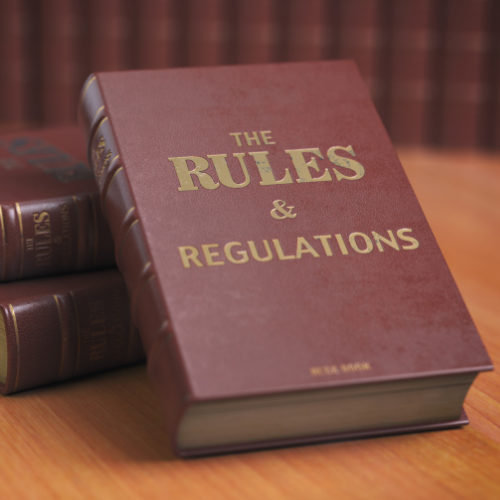In Massachusetts, a Restraining Order, also known as a protective order, can be obtained if a person has experienced abuse or fears imminent serious physical harm from a family or household member. Abuse includes:
- physical harm,
- attempts to harm,
- causing fear of imminent serious physical harm, or
- forced sexual relations.
You may also get a Restraining Order is you’ve suffered from harassment. There are three main types of restraining orders:
- 209A Protective Order – for protection from a family or household member.
- 258E Harassment Prevention Order – for protection against harassment from anyone, not just a household member.
- Extreme Risk Protection Order – restricts a person’s access to firearms if they pose a risk of causing bodily injury to themselves or others.
To obtain a restraining order, the individual must apply at a local court, and a judge will determine the necessity based on the evidence presented.
Types of Restraining Orders
in Massachusetts
209A Abuse Prevention Order
In Massachusetts, a 209A Abuse Prevention Order, commonly known as a Restraining Order, is a legal tool designed to protect you from abuse or harassment by family or household members. Family or household members include:
- spouses,
- former spouses,
- blood relatives,
- co-parents, and
- those in substantive dating relationships.
To qualify for a 209A order, you must demonstrate that you have experienced abuse or have a reasonable fear of imminent serious physical harm from your abuser.
258E Harassment Prevention Order
Unlike a 209A order, a 258E Harassment Prevention Order is not limited to protection from family or household members. This type of order is available to anyone facing harassment, regardless of the relationship with the perpetrator. Harassment includes behaviors such as:
- stalking,
- unwanted contact,
- threats, and
- intimidation.
A petitioner seeking a 258E order must prove that they have been subjected to harassment and that they fear for their safety or well-being as a result.
Eligibility and Grounds for Obtaining a Restraining Order
Criteria for Seeking a Restraining Order
To obtain a Restraining Order in Massachusetts, the petitioner must have a reasonable fear of imminent serious physical harm or prove past abuse or harassment. Abuse encompasses various forms of harm, including:
- physical violence,
- threats,
- emotional abuse, and
- sexual assault.
The petitioner can file for a restraining order at the:
- Superior Court,
- District Court,
- Boston Municipal Court,
- Juvenile Court or
- Probate and Family Court
depending on the circumstances.
It’s essential to provide evidence supporting the allegations, such as:
- police reports,
- medical records, or
- witness statements.
Legal Process for Obtaining a Restraining Order
The process of obtaining a restraining order typically begins with you filing an application and submitting a sworn statement detailing the alleged abuse or harassment. In emergency situations, an ex parte temporary restraining order may be granted without the alleged abuser present. Subsequently, a hearing is scheduled where both parties have the opportunity to present evidence and testimony before a judge. Based on the evidence presented, the judge may issue a Temporary Restraining Order.
Terms and Enforcement of Restraining Orders
Terms of a Restraining Order
A restraining order outlines specific terms and conditions that the respondent must adhere to. These may include:
- maintaining a certain distance from the petitioner,
- refraining from contacting the petitioner in person, by phone, or through electronic means, and
- turning in any firearms or weapons in their possession.
Violating any of these terms constitutes a criminal offense and may result in fines, imprisonment, or both.
Enforcement of Restraining Orders
Law enforcement officers are responsible for enforcing restraining orders and ensuring your safety. If your abuser or harasser violates the terms of the order, you should contact the police immediately and report the violation. Police officers have the authority to arrest your abuser or harasser for violating the order.
Consequences and Legal Assistance for
Restraining Orders
Consequences of Violating a Restraining Order
Violating a restraining order in Massachusetts is a serious offense with significant consequences. A violation may result in criminal charges, including:
- fines,
- probation, or
- jail.
Moreover, it can have collateral consequences, such as:
- affecting child custody arrangements,
- employment opportunities, and
- immigration status.
It’s crucial for respondents to understand the terms of the restraining order and comply with them to avoid legal repercussions.
Help Getting a Restraining Order in Massachusetts
If you’d like help getting a Restraining Order without paying an expensive attorney, we can help. With our Legal Coaching we can walk you through every step to make sure you’re ready for your hearing. The first thing to do is see if you qualify for a Massachusetts Restraining Order. Click on the link below to see if you qualify for either type of Restraining Order.
Legal Disclaimer
This article is intended for informational purposes only and does not constitute legal advice. Please consult with an attorney to discuss your specific circumstances and receive tailored guidance.

I have been practicing law in Massachusetts since 1995. My focus is in the areas of criminal and family law. I’m dedicated to providing high-quality legal help at an affordable price. I practice throughout Massachusetts. I earned my MBA from the University of Rhode Island in 2023. I earned my JD from New England School of Law in 1994. I earned my BA from Rhode Island College in 1990.


